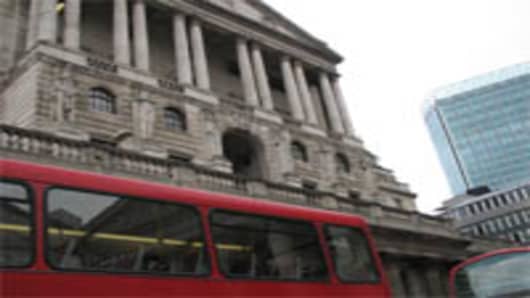The call for further quantitative easing by business leaders in the UK to reboot the economy has divided analysts and commentators between those who fear it will create a bigger deficit and those who argue that it is needed to stave off another recession.
Erik Britton, director at Fathom Consulting told CNBC Thursday that the UK has plenty of scope for further monetary stimulus and the coalition government must not backtrack on fiscal austerity.
"It's important that any further QE is targeted to where there is a shortage of liquidity, at the illiquid assets around the economy. Debt is a millstone, around the neck of the UK economy. Debt is a drag on growth and subdued growth could last for up to decade," he said.
However, Professor Keith Pilbeam, director of business at City University London told CNBC that this was the last thing that the UK economy needed.
"I am actually against further stimulus. We don't need more printing of money or a bigger fiscal deficit. We can't afford it. As a country we need to go back to the supply side of economics, structural reform. There are a lot of things we can do that does not involve printing of money," he said.
He added that the UK needed to reform the tax system, the pension system and raise the retirement age, and said current coalition government policies were not working.
"There is just some crazy economics out there we are penalizing savers with record low interest rates to bail out the bankers.
Banks and their shareholders and bondholders should suffer, not me the taxpayer who is bailing them out," Pilbeam argued.
Britton said the priority for the UK was to avoid a sovereign debt crisis with structural reforms secondary.
"Banks have temporarily ceased printing money but we don't know what they will do in September. We won't default on the debt because we can just print more money," Pilbeam added.
Against the backdrop of calls for further quantitative easing were comments by Danske Bank that the UK should lose its triple A credit rating and be downgraded by four notches to A+.Analysts argue that this could happen in 2012, but it remains uncertain due to the "big political element" involved in the credit ratings process.
Danske Bank's chief analyst John Hydeskov also told CNBC.com that it was unlikely there would be imminent monetary stimulus in the UK.
"It is not going to happen – at least not now. Maybe in November but even then I can't see what form it would take and I doubt it would have much market impact," he said.


